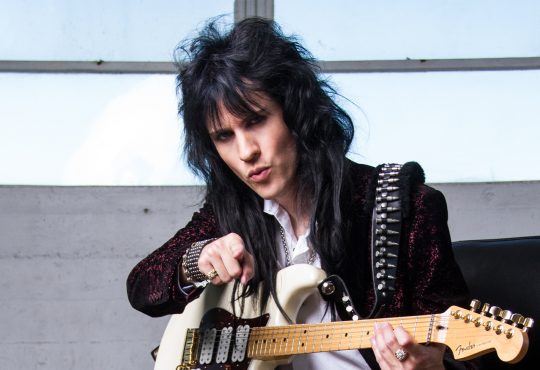The Good Thief of ‘Lupin’
Back in 2019, when showrunner George Kay was fleshing out the protagonist for a new crime show inspired by Arsène Lupin — the “gentleman thief” at the center of a popular series of early-1900s novels by French author Maurice Leblanc — there was one quality he knew his hero would need: “Good arrogance.” “It’s arrogance you don’t object to; you just admire [it],” Kay says. “It’s: ‘I’m going to literally take all your life savings. But if I do it with a big enough smile on my face, you kind of don’t mind.’ ”
Good arrogance is exactly what carries the hero he created, a smooth criminal named Assane Diop, through his adventures in Lupin, the French series that’s become the most unexpected hit of 2021. Over the five episodes that make up Part One (Part Two arrives this summer), Diop, played by the magnetic Omar Sy, sets about avenging the death of his father, a chauffeur who kills himself after his media-tycoon boss accuses him of stealing a piece of jewelry. The show makes use of every side street and corner of Paris as Diop carries out his plot, channeling his boyhood idol Lupin in crimes ranging from common street pickpocketing to an intricately planned heist of a $70 million necklace. Less than a week after its January release, Netflix says, Lupin became the streaming service’s second-most popular show in the U.S., and number one in dozens of countries.
“It’s the right show at the right time with the right guy,” says director Louis Leterrier, who helmed the series’ first three episodes. “It just felt like a true escapist story in a time that needed an escape.”
Sy was the key ingredient from the beginning. A massive star in France, he started his career as a comedian shortly after high school, before moving on to TV and film. He won a Best Actor César for 2011’s Intouchables, which became one of the highest-grossing French films in the country’s history. (He’s also appeared in Jurassic World and X-Men: Days of Future Past.) A few years ago, his longtime collaborators at the French film company Gaumont asked him what role he’d most want to play. “If I were English, I’d say James Bond,” Sy says, speaking from Paris via Zoom. “So I said Lupin, who’s kind of the same.”
Kay, also a showrunner of the Netflix police-procedural anthology Criminal and a writer for Killing Eve, had lunch with the actor not long after, and was immediately sold: “I ended up wanting to write [for] Omar. If Arsène Lupin was going to be the way to do that, that was the bonus. [Omar is] loved across society in terms of different ages, men, women. He’s such a charismatic guy. … Omar can do anything with a smile and you forgive him.”
“Every solar system needs its star,” adds Leterrier. “And we all rotated around Omar. You start with a great scene on the page, and Omar will turn it into an opera of emotion. Omar is all about the peaceful strength. The hulking man with true smarts and culture and education. That translated very elegantly and easily for me in the show.”
Kay used Leblanc’s books more as inspiration than blueprint, weaving their themes into Diop’s life. He also wanted to make a show that he, his wife, and their two young daughters could all watch together. In keeping with that goal, Lupin spills virtually no blood, the cursing never rises above “angry substitute teacher” level, and you can count the murders on one (gloved) hand.
Structurally, Kay referenced the old-fashioned “stories of the week” he enjoyed as a kid, like Raffles, the 1977 British crime drama about a cricketer thief, adapted from short stories written around the same time as Leblanc’s books. Each Lupin episode plays with its own stand-alone story — a kidnapping, a battle on a train — while still expanding the overall revenge narrative around Assane’s father. “You end up pushing through those self-contained stories because there’s a bigger emotional journey going on,” says Kay.
That journey is worlds removed from James Bond, whose suave demeanor and unflappable poise share surface similarities with Diop. While Lupin’s over-the-top action, subtle trickery, and spy-music soundtrack also nod to film’s greatest secret agent, the show’s creators humanize their hero in a way that’s both relatable and unprecedented in modern TV. Sure, Diop wears a three-piece suit when he needs to, but he mostly favors hoodies, sweats, and sneakers. And you’d never see Bond pay alimony to his ex or nearly forget his teenage son’s birthday like Diop.

Clotilde Hesme and Omar Sy on the set of ‘Lupin.’
Emmanuel Guimier/NETFLIX
“I wanted to create a guy who’s a superhero in one half of his life but has all the failings and fault lines that we all do in our personal lives,” Kay says. “It was entertaining to think that, yes, this guy can walk into the Louvre and steal a necklace without breaking a sweat, but he can’t work out how to talk to his kid. Only once we ground him can we see him fly within the other aspect to create a 360-degree character.”
“Heroes usually don’t have their feet on the ground,” says Ludivine Sagnier, who plays Diop’s estranged wife, Claire. “They don’t have a wife. They’re always running from reality. James Bond, with his tools and cars and gadgets, [is] completely inaccessible. [Assane] is magical, heroic, a very special and powerful guy, but he’s one of ours. This hero is fragile because of his humanity, and it makes him even more endearing.”
That down-to-earth quality extends to Kay’s use of tactile, analog solutions to Diop’s predicaments. One deep-fake subplot aside, sleights of hand, clever ruses, hidden clues in notes, frame-ups, double-crosses, cat-and-mouse chases, and many, many disguises are Assane’s everyday tools. “There’s nothing more dry than watching someone hack into a computer,” Kay says. “You want to pick a lock or climb a wall. You can feel nature’s forces at play.”
Kay was also hyperconscious about updating the books “to a France where Omar is the star and loved,” he says. Or as Sy puts it: “The character had to be a Frenchman from today. That’s why we have a black guy coming from African descent living in the projects. It’s a new face of France. All of that comes with new topics: How do people see this guy? How do you live in a country when you’re a guy like that? How do you earn money?”
Lupin confronts the racism levied against Diop in ways both subtle and overt (“I wasn’t expecting a buyer like you,” an auction-house employee tells Assane after his purchase of precious jewels), but for Sy, examining the underlying class structures prevalent in the book series was essential. “George wanted to talk about the racial aspect and I agreed with that,” he says. “But more important for me was the social part. It’s more like poor against rich than black and white. The fact that we have different classes never changed [from when the books were written]. It’s the same road [on] a different map.” The idea is perhaps best encapsulated by a scene where someone asks Assane how he can pull off a planned heist. “Those at the top don’t look at the bottom,” he replies.
Kay prefers to “smuggle” these social-justice messages into the show, favoring understatement over a sledgehammer. The primary concern is always pulling the audience fully into Assane’s world. “We don’t want to give lessons to people,” says Sy. “We want to have fun with a TV show and at the same time leave a little bit of messages on the road.”
That mix is a common through line for much of Part One. Kay is tight-lipped about Part Two, but says it will go deeper into Assane’s father and his relationship with his son, and flesh out the supporting characters more: “[It] really fills in where [Assane] comes from and how he got here, and why he now needs to finish that part of his story.” (He’s already begun storylining Part Three.) And Sy will undoubtedly continue to bring his character’s good arrogance to life. As the son of West African immigrants, he says it’s a quality he’s learned the value of personally.
“That’s something very important in my life: that you have to charm someone, especially when you come from the smaller class and you [move] higher,” Sy says. “My mom’s a cleaner. My dad used to work in a factory. Coming where I come from, I had to be arrogant, but with the right people at the right moment, because you have to sell yourself. To be accepted, sometimes you have to pretend. The good arrogance helps you.”
Talking to Sy, the conversation inevitably drifts back to Bond, a character you could easily envision the actor, with his natural charisma and endless charm, taking over. Would he want to play 007 one day? “Of course, yes,” Sy says immediately. “I know I can’t, though, because one of the rules [is he’s] English.” He breaks into a huge smile. The kind that would let him take your life savings and you kind of wouldn’t mind. “For now. But that can change.”







